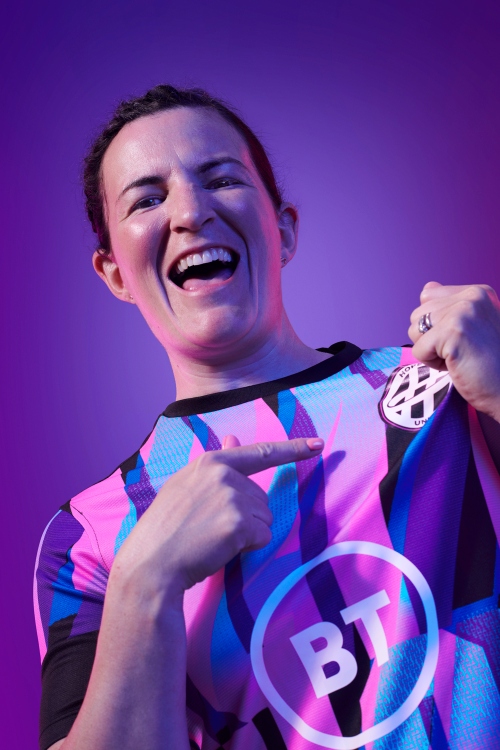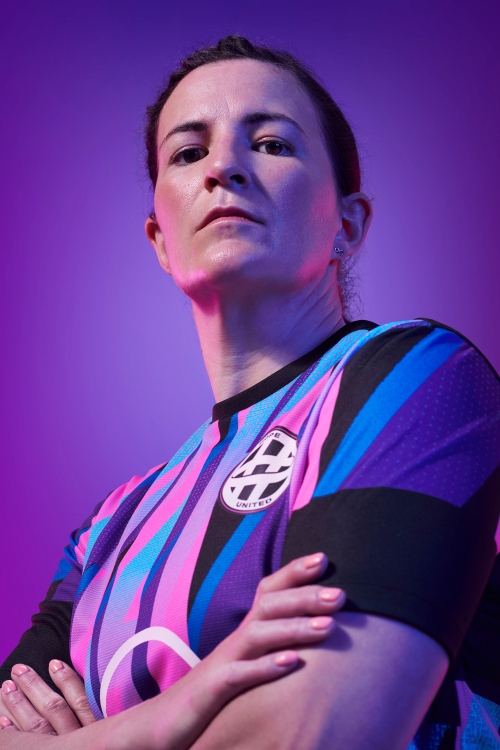
Online hate and abuse has increasingly been put under the spotlight recently, especially in the world of football, with clubs and players alike taking part in social media boycotts like the three day blackout at the end of April.
But now there’s another initiative which has been set up by BT to try and stamp out online abuse, involving footballers from across the home nations who have received hurtful comments on social media – Hope United.
Wales international Helen Ward is part of the Hope United squad and spoke in more detail about what the campaign is, why it’s important and how she deals with the abuse that she gets online.
What is Hope United and why has it been set up?
Hope United is a group of footballers from all different kinds of backgrounds, and all have different stories that have come together from the four home nations – Wales, England, Scotland and Northern Ireland – to try and tackle online hate and online abuse and give everyone a bit of hope that we can overcome it and if we do that it’ll be a nicer place on social media.
How do you feel about being involved in this initiative?
It’s amazing, to have been asked to be involved in something like this is really nice. As a player in the older generation growing up, I didn’t have social media to deal with, probably for the best part of my early career and certainly at school it was never a thing.
So, to have seen it only as an adult I feel like I’m in quite a good position to maybe help the younger generation and understand what social media is and what it can all be about if they’re not familiar with it. But just to show that we’re all in it together and that hope overweighs the hate really. And that if they need someone to talk to or report something to that they know there’s always going to be someone there so that they can do that.
How important is this campaign at a time like this?
I think it’s huge and I think with it being a campaign focused on football, obviously with the men’s Euros coming up, it’s sort of people that are in the spotlight at the moment as well that are involved, and they’ll have a lot of attention around them as well.
The male players in particular are going to be on centre stage so on their profiles if this message can get out there whilst people are scrolling through social media looking for football scores then it’s a good time to get this message out there.
But the pandemic has brought on a new level of online abuse and people have had a lot of time to sit and scroll through their phones and hide behind their screens to perhaps read or write things that you don’t want to see or hear and able to say things that you wouldn’t necessarily say to someone’s face, they’re able to do that online and that’s the trouble.
I think the amount of media attention there is around it at the moment, now is an opportune time to get that message that we’re not going to stand for it and we’re not going to tolerate it.

Have you received abuse on social media and how do you go about dealing with that?
I’ve said to many people that I’m probably one of the fortunate ones in that I don’t have too much to deal with. Obviously, I don’t have any sort of racist abuse, I get the occasional sexist comment, just that women shouldn’t play football or don’t know anything about football because I’m female.
I’m quite strong minded in that I can ignore a lot of it and if I can’t ignore it then I try to reply or respond in a respectful way and almost teach them in a way rather than just have a go straight back because I don’t think that’s going to get us anywhere. Or just highlight it without any sort of response; just make people aware that this is the kind of thing that you see on my timeline and people can make their own minds up and whether it’s right or wrong, and more often than not people see it as the abuse or the negativity that it is.
I try not to get involved in the slanging match or anything like that but fortunately I’ve not had anything that’s been too deep and too hurtful that it’s caused me too much stress, but I know that’s not the case for many people.
How optimistic are you about the campaign?
I am optimistic, I don’t think it’s going to be a quick fix, but I think campaigns such as this can help people realise that the world can be a nicer place and there are a lot of nicer people around than not, but the light often gets shone on the dishing out of negativity and the abuse. And maybe just to get people to think about what they’re doing online, why they’re there and really what do they get when they send abuse to someone.
What impact is me as a female talking about football really having on their life if they look at it properly? Am I really impacting it that negatively that you feel you need to send a message? Or anybody else in football, is it really impacting your life that you feel the need to send abuse and if you’re on the other end of it, how would that make you feel? And almost second guessing yourself, before you hit send have a real think about what it is you’re writing.
If you wouldn’t say it to their face, maybe don’t say it on a computer screen or a phone either.
BT’s Hope United will rally the UK to tackle online abuse as part BT’s commitment to digitally upskill the nation. To find out more about how you can play your part, watch BT's Tech Tips at bt.com/hopeunited. Together we can beat online hate.
Words by Lucy Roberts for Female First, who you can follow @Lucy_Roberts_72 on Twitter.
MORE: Fitness coach Stephanie Warwick discusses virtual gym TRX Training Club

